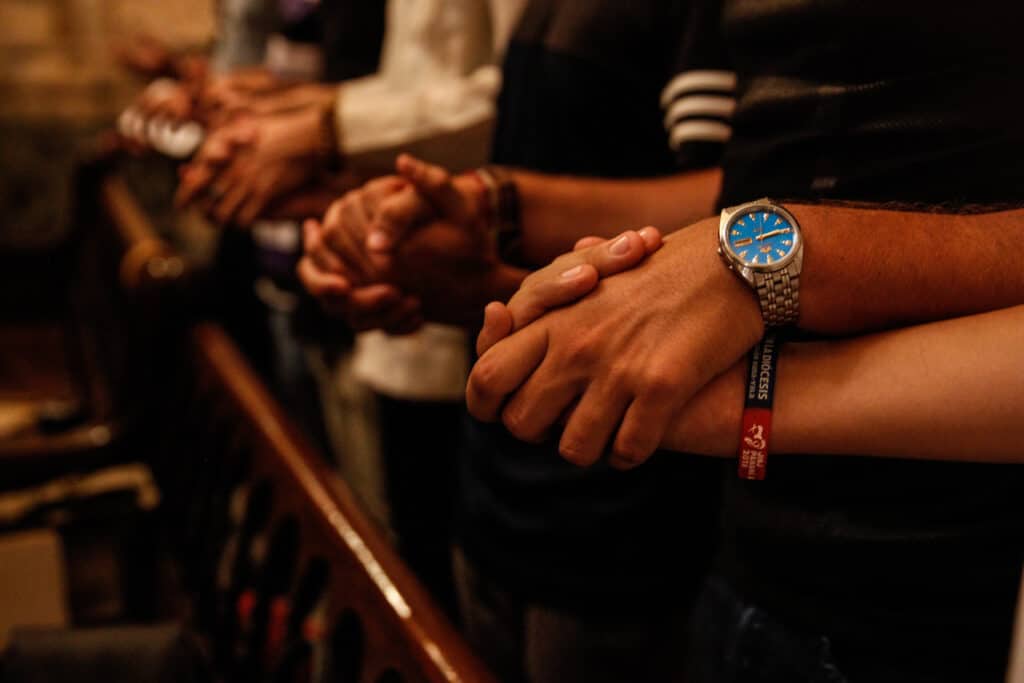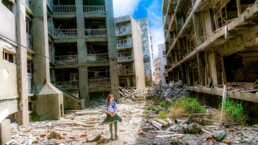The news that Russia has attacked Ukraine has deeply concerned many of us. We have to realize that the order of peace in Europe has been shaken to its foundations. This war should not be seen in an isolated way, but in the context of other recent developments: the pandemic, the increasingly severe natural catastrophes, the widespread debate about a person’s new image and about the forms of human relationships in the Church and in society. Not only is one of the cornerstones of our human coexistence faltering, but the whole structure of the human community has been shaken to its very core. We are living in a time of deep upheaval. What can we learn from this for ourselves?
Coexistence requires readiness for dialogue
Peaceful coexistence presupposes that both sides are willing to engage in dialogue when different points of view are revealed. If one of the parties insists on its position and is not willing to reconsider it, or if it wants to impose its own interests at any cost, dialogue is not possible. Dialogue presupposes that I am fundamentally willing to question my own position and, if necessary, to change it. If there is no willingness to change from the very beginning or if one’s own position is grounded in stubbornness, dialogue cannot lead to a mutually agreed outcome. In a sense, dialogue requires a certain self-denial. If I enter into a dialogue only to convince the other person of my stance, but at the same time refuse from the start to consider a different standpoint, then I am essentially rendering the dialogue, which in itself should be fundamentally open, fruitless.
Dialogue requires trying to understand what motivates the other
Dialogue also presupposes a willingness to listen to each other. I listen to what the other person has to say, without interrupting. If I don’t understand something, I ask. I let the other person explain how he or she thinks. In doing so, I not only internalize the arguments, but I try to perceive what moves the other person: their experiences, their feelings, their history.
It is not uncommon for stances to be marked by one’s own immutable background, which is backed up by matter-of-fact arguments. If I do not take the other’s personal concerns seriously, I cannot understand his or her position. Dialoguing means not only listening to the other, but also trying to understand him.
In order to engage in dialogue, we must not make an immediate judgement
This means that I do not immediately judge what the other person is telling me, especially that I do not immediately condemn him/her from a moral point of view, but that I first take it all in. As soon as a judgment is made, at least certain considerations are ruled out. The firmer the judgment, the less chance there is of arriving at a common outcome. There is also the danger that I set myself up as a judge over the other person, but without taking into account that I am not without faults either.
At the same time, I have to give the other person the opportunity to understand me. This requires a certain openness on my part. If I do not tell the other person anything about myself or if I only reveal a portion of my position, I deprive him or her of the possibility of understanding me. If the parties do not understand each other, it will be difficult for them to reach an outcome that satisfies both of them.
Creating a climate of trust
The prerequisite for this openness is mutual trust. The weaker the trust, the less I will allow others to take a glance at my cards because I want to protect myself from being taken advantage of.
Mistrust means that I am not sure that the other person is being honest with me. But if one of the two parties is distrustful, it is also impossible for the other to be trusting. Therefore, for a real dialogue to take place, we first have to build trust in each other. The better we understand each other in a dialogue, the closer we will become.
What is unknown to us often makes us apprehensive. But if we understand the other better, the level of fear is reduced.

The best form of dialogue: a three-way dialogue
From a Christian perspective, a dialogue should always be a three-way dialogue. It is not just two people talking to each other, but there is always a third person present: God. By having God as a third party, dialogue becomes a way of trying to discover together what God wants to say. If, on the other hand, we always retreat inwardly and close ourselves off from the other, we often close ourselves off from God as well. If we listen to each other openly, we will gradually hear God’s voice and recognize how he wants to guide us. Thus, when both parties understand dialogue as a way by which God can guide, they will become detached from themselves and open themselves to divine Providence.
It may be unexpected to speak of dialogue in view of the war in Ukraine. The war occurred because there was no real dialogue between the various parties, perhaps also because there was no real commitment to dialogue. However, if we are honest, we will recognize that similar processes also occur in political and ecclesiastical contexts in our society, even if conflicts arising from refusal to engage in dialogue are not carried out with weapons. Yet mutual rejection or even hostility can also be felt in these contexts. In this sense, the war in Ukraine is the symbolic tip of many conflicts we face today: over political decisions, over the vaccination debate, over the effective conservation of nature, over the Church’s path into the future. So, this war can be a reminder for us to break through unyielding factions and meet each other again and with greater openness.
Related posts
April 16, 2024
In Times of War: How to be a peacemaker through the Covenant of Love
In these times when many conflicts are escalating in the world, we need to return to working together to build peace. It seems difficult,…
April 4, 2024
The unprecedented Family Missions on the island of Formentera
Formentera is sun, beautiful beaches, pubs, parties... But it is also hard work, perseverance, struggle... This is the reality, complex as…
March 24, 2024
The Schoenstatt Fathers’ mission in Punjab, India
New Face of Schoenstatt Fathers in Punjab After constant reflection, prayers and discussions, the Schoenstatt Fathers of Providence…




